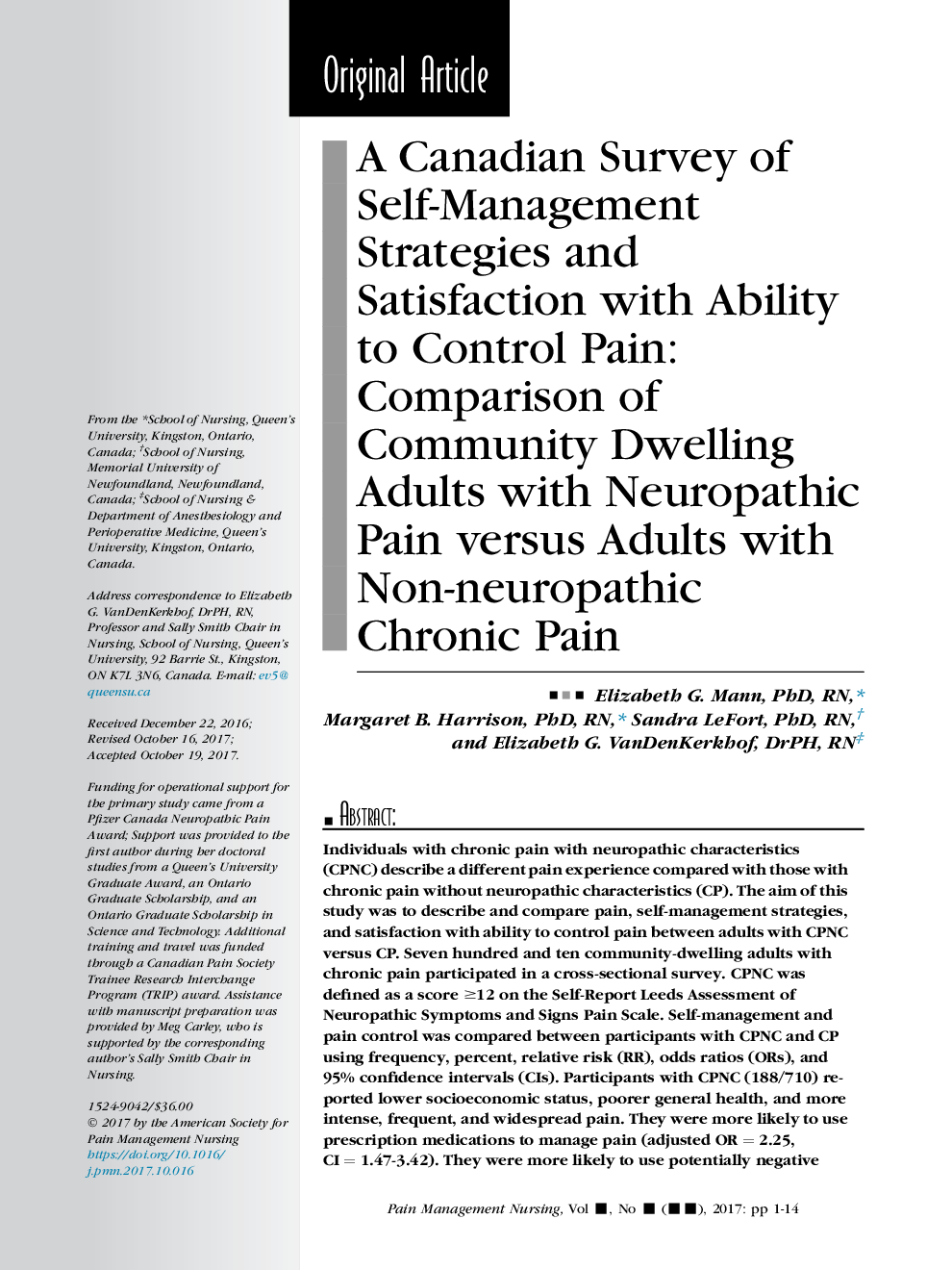ترجمه فارسی عنوان مقاله
بررسی کانادایی استراتژی های خودمراقبت و رضایت از توانایی کنترل درد: مقایسۀ بزرگسالان ساکن جامعه با درد نوروپاتیک در مقایسه با بزرگسالان مبتلا به درد مزمن غیر نوروپاتی
عنوان انگلیسی
A Canadian Survey of Self-Management Strategies and Satisfaction with Ability to Control Pain: Comparison of Community Dwelling Adults with Neuropathic Pain versus Adults with Non-neuropathic Chronic Pain
| کد مقاله | سال انتشار | تعداد صفحات مقاله انگلیسی |
|---|---|---|
| 160824 | 2018 | 14 صفحه PDF |
منبع

Publisher : Elsevier - Science Direct (الزویر - ساینس دایرکت)
Journal : Pain Management Nursing, Available online 2 March 2018

